WAR MUSEUM AFRICA DAY EXHIBITION:
THE COLONISATION OF ZIMBABWE AND THE SOUTH AFRICAN WAR
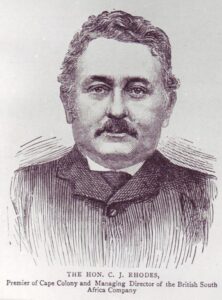
During the late 1800s, European powers began to take control of many parts of Africa. This period is known as the Scramble for Africa. European countries wanted African land, natural resources, and markets for their goods.
In 1888, a British businessman, Cecil John Rhodes, made a deal with King Lobengula of the Ndebele people. Rhodes claimed the deal gave him permission to mine for minerals. But he used it to get full control of the land. He formed the British South Africa Company (BSAC), which took over large parts of Zimbabwe by force and trickery.
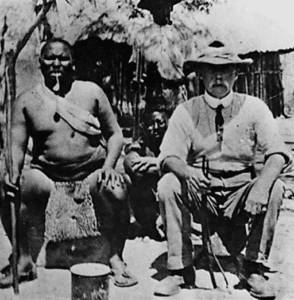
By 1890, British settlers arrived and took over the land. They named it Southern Rhodesia after Cecil Rhodes. The local people were pushed off their farms, and the best land was given to white settlers. Africans had little political power and few rights in the British colony.
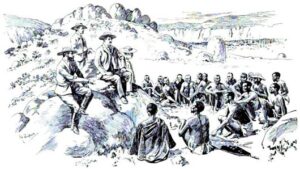
There were many uprisings against colonisation. One of the most important was the First Chimurenga in 1896–1897. The Shona and Ndebele people fought bravely, but they were defeated by the better-armed British forces.
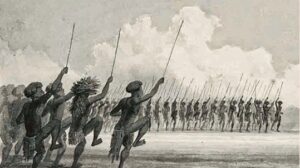
Rhodes also attempted many of the same tactics to place the Transvaal republic under the control of the British Empire. In 1895, he facilitated the failed “Jameson Raid”. This was a failed attack on the Boer government in the Transvaal. It was secretly supported by Rhodes and meant to start an uprising among the British settlers living there (called “Uitlanders”). The raid failed, and it made the Boers very angry. It also hurt Rhodes’s reputation and forced him to resign as Prime Minister of the Cape Colony.
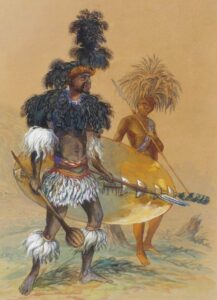
After the Jameson Raid, tensions between the British and the Boers grew. Rhodes continued to push for British control in the region, which helped cause the war. During the South African War, Rhodes was in the town of Kimberley, which came under siege by Boer forces. He helped organize the defence of the town and was seen as a hero by some, though others criticized him for being too involved in military matters.
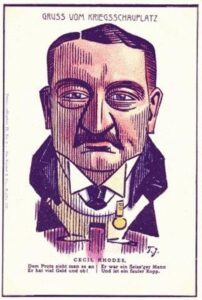
Rhodes was one of the most influential figures in colonial history, and has become a symbol of colonial oppression, as well as the resistance against it. Even in the 21st century, his legacy continues to be a source of deep resentment for many.